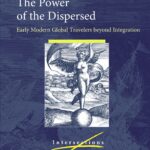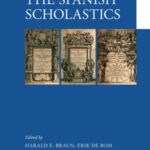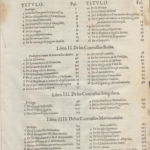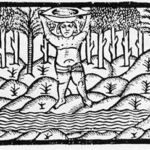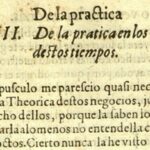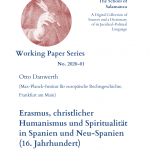For the sake of viewer convenience, the content is shown below in the alternative language. You may click the link to switch the active language.
Autor: José Luis Egío
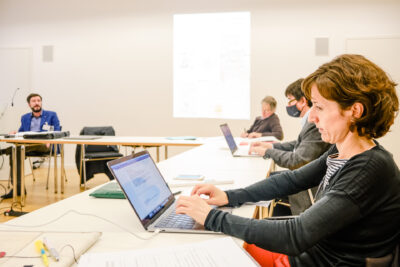
Entre el 25 y el 26 de octubre tuvo lugar en el Instituto Max Planck de Historia y Teoría del Derecho un importante Encuentro preparatorio del futuro Diccionario del Lenguaje Jurídico-Político de la Escuela de Salamanca. Estuvieron presentes destacadas figuras de la historia del derecho, la teología y la filosofía en la Primera Edad Moderna, venidos de Universidades italianas, españolas, francesas y danesas, en orden alfabético: Paolo Astorri (Copenhague), Juan Belda Plans (Pamplona), Manuela Bragagnolo (Trento), Luisa Brunori (Lille), Orazio Condorelli (Catania), Francisco Cuena Boy (Santander), Elena Danieli (Bologna), Lidia Lanza (Lisboa), María Martín (Salamanca), Faustino Martínez (Madrid), Joaquín Sedano (Pamplona), Idoya Zorroza (Salamanca), Pilar Mejía (Frankfurt), Ana Soler (Frankfurt).
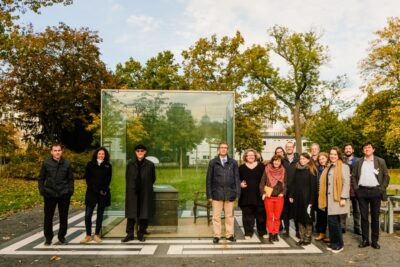
Durante el Encuentro, en el que se alternaron como lenguas co-oficiales el castellano y el italiano, tuvo lugar la presentación y debate de una serie de borradores de las primeras voces del Diccionario, a cargo de Danieli (maleficium), Belda Plans (theologia) y Cuena Boy (contractus & quasi contractus). Andreas Wagner y José Luis Egío, miembros del proyecto de investigación sobre la Escuela de Salamanca en el que se enmarca el Diccionario, presentaron, por su parte, la voz infidelitas. Ambos hicieron especial énfasis en la estructura y características formales que deberían tener los distintos artículos del Diccionario para lograr conformar, andando el tiempo, una obra homogénea. Las diferentes presentaciones estimularon, además, un amplio debate sobre formas idóneas para integrar las fuentes escolásticas en las distintas voces, el desafío que representa un amplio listado de conceptos cuyas implicaciones y campos de aparición son diversos en las obras de teólogos y juristas o las potencialidades a esperar de la versión electrónica de las voces del Diccionario, estrechamente interrelacionadas con el Corpus de fuentes de la Escuela de Salamanca que, actualmente, está siendo editado.
https://www.salamanca.school/es/works.html
El Encuentro sirvió asimismo para que Christiane Birr (coordinadora del proyecto La Escuela de Salamanca) y Thomas Duve (director del mismo) ofrecieran un balance del estado de desarrollo del mismo y discutieran con los y las participantes las estrategias de investigación a implementar en el futuro. Fruto de los debates celebrados se profundizó, por ejemplo, en la criba del listado de lemas a incluir en el Diccionario del Lenguaje de la Escuela de Salamanca, sugiriéndose estrategias para subsumir algunos lemas dentro de otros con un espectro de significación más amplio o la incorporación de términos relevantes provenientes del ámbito del derecho mercantil.
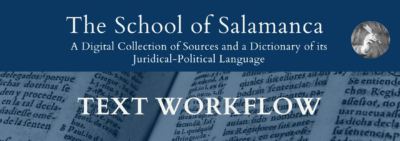 Since its beginning in 2013, the Salamanca Project has been developing a text editing workflow based on methods and practices for sustainable and scalable text processing. Sustainability in text processing encompasses not only reusability of the tools and methods developed and applied, but also long-term documentation and traceability of the development of the text data. This documentation will provide an important starting point for future research work. Moreover, the text preparation must be scalable, since the Digital Source Collection comprises a relatively large mass of texts for a full-text digital edition project: in total, it will involve more than 108,000 printed pages from early modern prints in Latin and Spanish, which must be edited in an efficient and at the same time quality-assured manner.
Since its beginning in 2013, the Salamanca Project has been developing a text editing workflow based on methods and practices for sustainable and scalable text processing. Sustainability in text processing encompasses not only reusability of the tools and methods developed and applied, but also long-term documentation and traceability of the development of the text data. This documentation will provide an important starting point for future research work. Moreover, the text preparation must be scalable, since the Digital Source Collection comprises a relatively large mass of texts for a full-text digital edition project: in total, it will involve more than 108,000 printed pages from early modern prints in Latin and Spanish, which must be edited in an efficient and at the same time quality-assured manner.